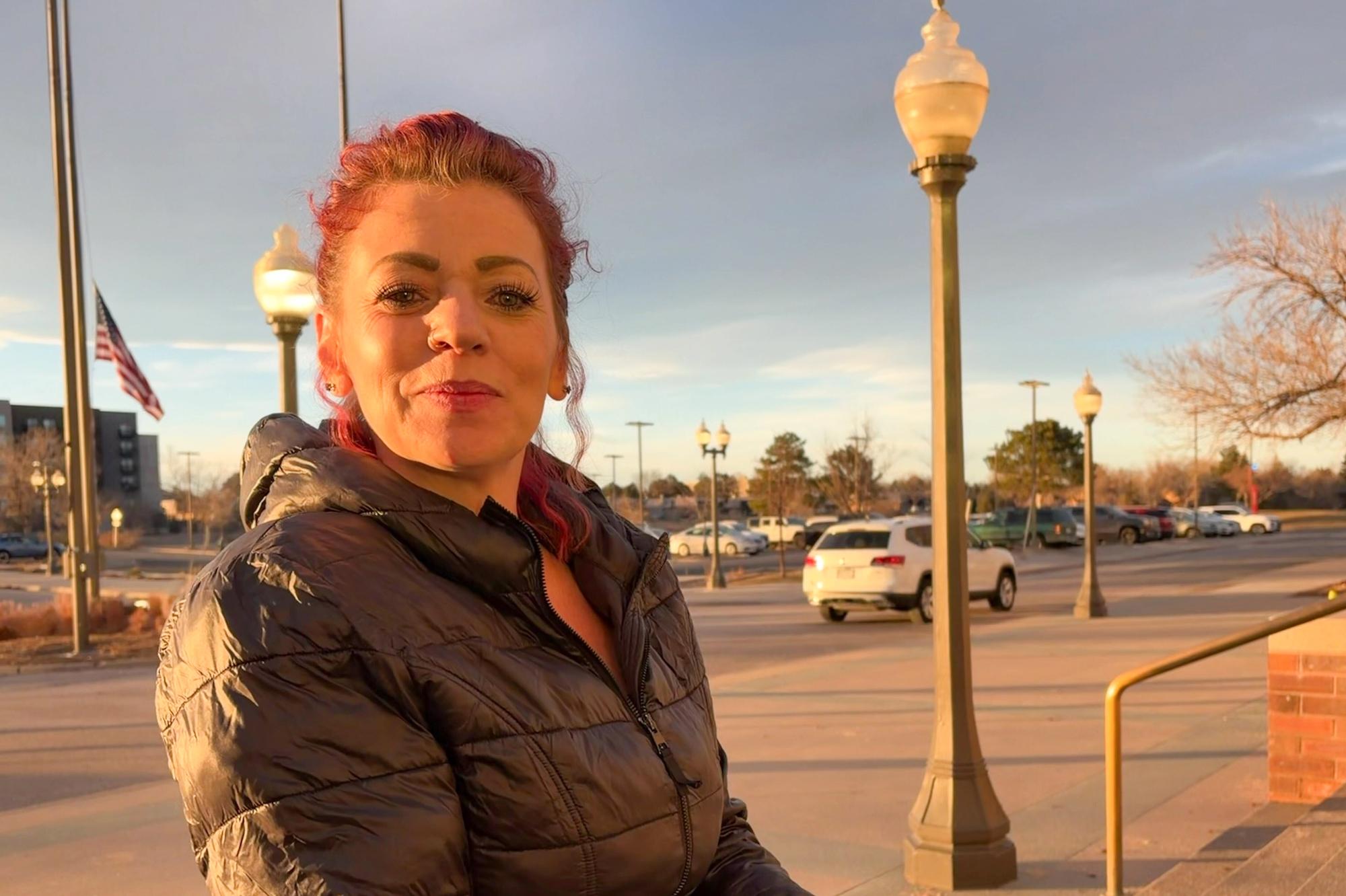
Water rights can be a touchy topic for Colorado families whose livelihoods are tied to the resource's availability. But in the tight knit community of San Luis in southern Colorado, a group of farmers and ranchers uses old methods of cooperation to help ensure healthy livestock and a good harvest in the arid region.
In 1865, Dario Gallegos established the Corpus Gallegos Ranches. Generations later, his direct descendants, Jerry and Joe, own the ranch.

The brothers are feeding their cows an alfalfa mix grown using water from the San Luis People's Ditch, the same water source used by Dario.
The community-operated irrigation ditch is also known historically as an acequia. It runs four miles long through 24 different lots supplying water for crops.
"Here, in the southern part of this area, we're laid out in long narrow rectangles," says Joe Gallegos, scratching in the dirt with a stick. "This is a long lot system, a grid system," he adds. "This came from the Moors in Spain, this design."
The Gallegos brothers are hurrying to feed the cattle so they can get back into town before the annual ditch meeting begins. That's where members of the People's Ditch elect the Mayordomo, or Ditch Rider, who decides when each ranch is allowed to use the supplied water to irrigate their land.
"Making sure that Farmer A and Farmer B get their fair allocation of water, that somebody's not taking more than the other. Just trying to make sure it's all fair," says Joe Gallegos, who spent 13 years as the Ditch Rider, implementing the watering schedule amongst his neighbors.
A few miles away, the Culebra Creek rushes by. The stream feeds the concrete lined ditch from April through October. On this chilly March day, back at the Gallegos ranch, the ditch is dry.

"So the water's up to here, let's say," says Gallegos, demonstrating how water flows through metal headgates lining the sides of the channel. It flows then into a series of smaller trenches on his property. "I need water, I come out I pick [the headgate] up, it goes through that tube, just like that. And it just goes out and goes into my garden and irrigates."
Gallegos says each rancher irrigates his or her land in a similar fashion according to the schedule the Ditch Rider sets. In addition to the schedule, the Ditch Rider orchestrates maintenance and unplanned repairs as they arise.
"It's so seasonal," says Gallegos. "In the summertime and the winter time you don't even think about it, and then all of the sudden it becomes very taxing, very decision making and people come into your yard and wonder what happened. And sometimes you don't know what happened. It's kind of stressful about for a month."
Back in town, the meeting commences and more than a dozen people crowd around a large conference table. After the Pledge of Allegiance, roll is called, and the group reviews last year's finances and receives updates on special repair projects planned for this year. Next on the agenda is hiring the Ditch Rider for the season.
The current Ditch Rider is quickly re-nominated and two participants engage in a spirited discussion about watering frequency and duration. It lasts several minutes, but eventually dies down. The re-nominated Ditch Rider wasn't present, but the motion to rehire him for another year passes nearly unanimously.
Mike Maldonado's ranch uses water from the People's Ditch. He voted in favor of the re-hire and says neighborly cooperation is an important part of maintaining the People's Ditch legacy.
"I think we have incredible people here," Maldonado says. "I mean it's just a special and unique place and I think everybody understands that. Most of the people are heirs of someone who started way back when, so their farms have been in the family for many many years and generations. And I think that carries over. I think that's an incredibly unique thing for Colorado."

Back at the Gallegos' ranch, Jerry reflects on the evening's meeting and says he was glad for the discussion on watering frequency and duration. "It was good. 'Is mine not as important?' That was so good to hear."
Jerry Gallegos says the collaborative efforts of the group help mitigate issues quickly because everyone understands the water's importance.
"We utilize it to its fullest," he says. "We avoid waste. If some water gets by, it goes out, it goes to the river, it goes into another ditch for someone else to irrigate."
Connecting the Drops is a collaboration between Rocky Mountain Community Radio stations and the Colorado Foundation for Water Education. Find out more at YourWaterColorado.org. Support for this piece is provided by COBank.








